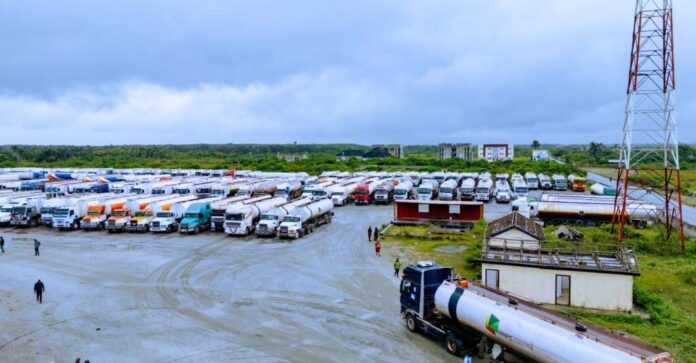Despite claims of an abundant fuel supply from the newly operational Dangote Refinery, the Nigerian National Petroleum Company Limited (NNPCL) continues to import millions of metric tonnes of petrol and diesel. This ongoing importation raises questions about Nigeria’s energy policies and the role of the national oil company in supporting local production.
Between October 1 and November 11, 2024, NNPCL imported 1,846,548.202 metric tonnes of Premium Motor Spirit (PMS), also known as petrol, and Automotive Gas Oil (AGO), or diesel. The imports come even as Dangote Refinery, Africa’s largest oil refinery, produces more than enough fuel to meet Nigeria’s daily consumption needs.
The situation has sparked concern and controversy. Despite Dangote Refinery’s ability to produce sufficient amounts of petrol and diesel, NNPCL has continued issuing import licenses to petroleum marketers across the country. Pinnacle Oil, one of the major marketers benefiting from these licenses, leads the importation effort.
This decision has caused a stir in the industry, as some experts wonder why Nigeria is still relying on imports when there is enough domestic production. According to sources, the continued imports are part of a larger $200 million per month operation that some insiders believe is designed to maintain profits at the expense of Nigeria’s resources.
A legal dispute has emerged as Dangote Refinery takes legal action against NNPCL, Matrix Petroleum, and other companies involved in the imports. The refinery seeks to nullify the import licenses, arguing that they are unnecessary and hinder the growth of domestic fuel production.
Dangote Refinery, located in Lagos, has been operational for some time now, producing not just diesel but also Jet-A1 fuel in excess of Nigeria’s daily consumption. This surplus has prompted the Crude Oil Refiners Association of Nigeria to call for a halt to the importation of petrol, pointing out that Dangote Refinery can meet the country’s needs.
Yet, NNPCL continues its importation activities, which critics argue are being facilitated by a network of marketers who profit from the practice. “I asked whether the fuel is subsidized because that’s the only way they could offer a lower price than Dangote’s,” one source shared. “I was told the imported fuel is substandard, which is why it can be sold at a lower price.”
Despite these revelations, efforts to contact NNPC’s spokesperson, Olufemi Soneye, for clarification have been unsuccessful. Calls went unanswered, and text messages bounced back as undeliverable, leaving many questions about the company’s decision to continue importing fuel without clear justification.
While Dangote Refinery’s management pushes for a stop to the fuel imports, some marketers have defended their actions in court. AYM Shafa Limited, Matrix Petroleum, and other defendants in the case argued that the refinery’s output has not been enough to meet local demand. They pointed to the long wait times for deliveries from the Dangote facility, claiming that it often takes months for trucks to load fuel.
Marketers have also expressed concerns that the refinery’s monopoly in the industry could harm competition and lead to higher prices for consumers. “If Dangote’s refinery takes over, it will kill competitive pricing in Nigeria,” one marketer stated. “This could worsen Nigeria’s already struggling economy and bring even more hardship to Nigerians.”

